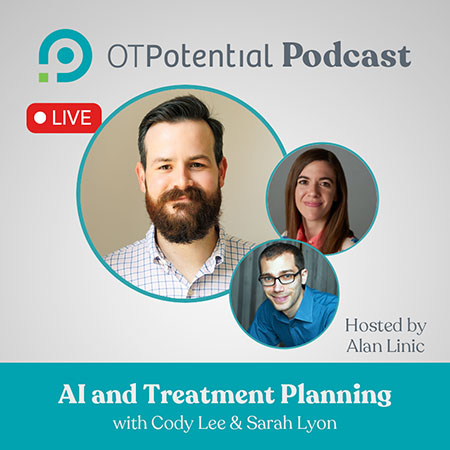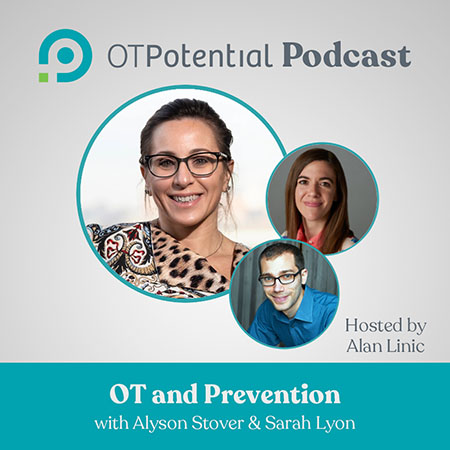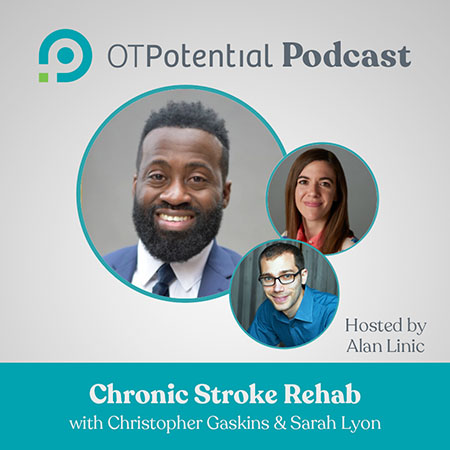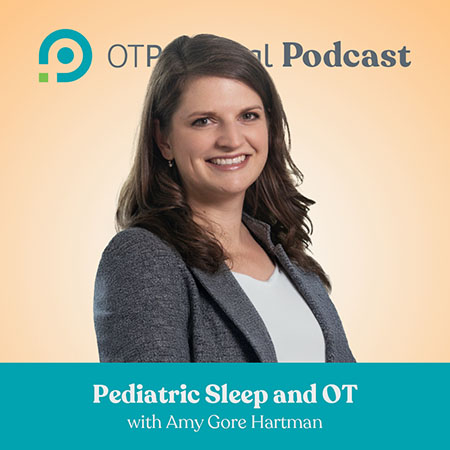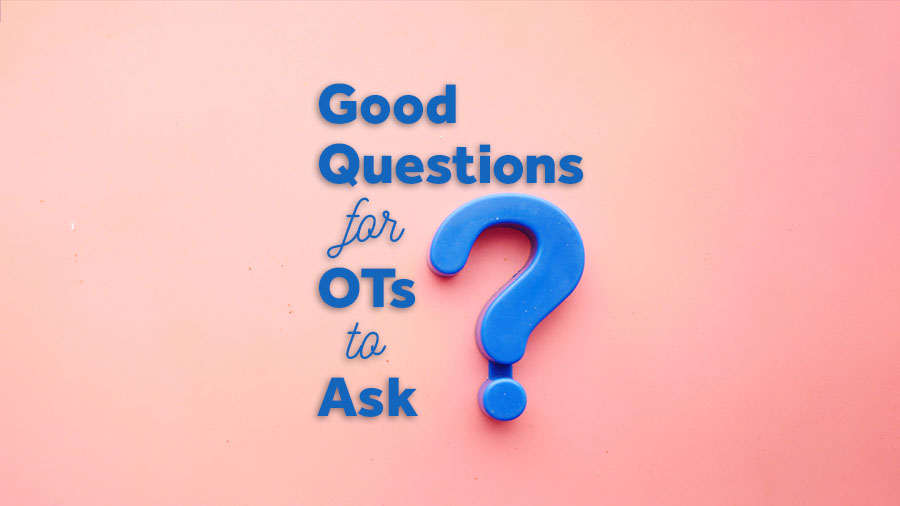
I remember in college reading these words in a poem by Macrina Wiederkehr:
“A good question holds as much grace as an answer… Guard us well from settling in with our answers hugged tightly to our breast…”
I think of this quote often when I think of occupational therapy. In our commitment to patient centered practice, it is our goal to always truly listen to our clients.
But, listening is hard—and often it means we have to loosen our grip on our own “answers.”
Over my years working on OT Potential, I’ve collected some of my favorite questions for OTs to ask during an evaluation (or throughout treatment.)
My hope is that these will inspire you to stay person-centered.
My Favorite OT Questions
Below are the questions suggested by Atul Gawande in one of my favorite books, Being Mortal. This book was not specifically about OT, but aligns so closely with our professional lens. See my full review here.
Gawande contends that whenever serious sickness or injury strikes and your body or mind breaks down, the vital questions are the same:
- What is your understanding of the situation and its potential outcomes?
- What are your fears and what are your hopes?
- What are the trade-offs you are willing to make and not willing to make?
- What is the course of action that best serves this understanding?
In his podcast episode, The Problem of Alzheimers, Jason Karlawish, M.D. suggests there are not enough people asking the following to our patients with dementia:
- How can we help you develop a day that’s safe, social, and engaged?
Again, while not specific to OT, the idea of creating days that are “safe, social, and engaged” explains exactly what we do. And, if you get a chance to listen to the episode, you will hear just how much that skillset is needed.
In our podcast episode with Brock Cook, we discussed the CORE Approach and its use of reflexive questions.
(Reflexive questions are intended to help clients reflect on their own lives and belief systems. This reflection promotes self-healing and gives clients more ownership over their care plan as they help chart their own path forward.)
We adapted the questions slightly to make them more client friendly. You can see the original questions in this article.
Capabilities
- What do you need to be able to do?
- What do you value most in life?
- What are you able to do and be?
Opportunities
- How can we create circumstances so you can be the person you are working to be?
Resources
- What resources do you need to enable these capabilities? (Resources could be personal, social, cultural, emotional, material, physical, spiritual, and/or technological.)
- How can we help mobilize these resources?
Environments
- How does your environment need to change to support your capabilities and opportunities?
Lauren Sheehan was the first person to introduce me to the two-word check in, during our podcast on self-management of stroke. (It has since been popularized by Brene Brown!) It is a simple and effective way to check in with your client at the beginning of a session.
- What are two words that describe how you are feeling today?
If you find your clients have difficulty naming their emotions, keep an emotion wheel on hand!!
It’s no secret that I’m a big fan of the Kawa Model. If you are new to this model, check out my conversation with Dr. Michael Iwama, one of the Kawa Model developers!
In the the model, the therapist asks the client to imagine their life as a river:
- If your life was a river, what does your river look like?
- How would you describe the flow of your river right now?
Conclusion
I look forward to adding more good occupational therapy questions to this post over the years! (If you have any favorites, let me know in the comments.)
And, to quote another line from my favorite poem in college:
Here’s to being “seekers rather than settlers.”

